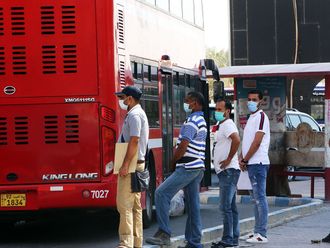Manama: The presence of a high number of "free visa" foreigners in Kuwait has increased the number of crimes in the country, Kuwaiti residents said.
Kuwait newspaper Arab Times quoted residents as saying that they “resent” the presence of the foreigners, alleging that they committed crimes like car thefts and mugging.
"The problem is caused by people who trade in visas since they bring a huge number of people into the country, but do not give them jobs. Visa traders are only interested in filling their purses, not in public good," the newspaper quoted residents as saying.
A frequent suggestion is for the authorities to relentlessly pursue dubious companies that bring in labourers and leave them high and dry, they said.
"The phenomenon is threatening social stability and effective action needs to be taken," they said.
One Kuwaiti man said he caught an intruder who was drunk and was knocking his door at a late hour.
He said he called police which promptly arrived and arrested the suspect.
The drunk later told police that he is a victim of an illegal company and that he had no job or money.
Another citizen told the Kuwaiti daily authorities should intensify efforts against visa traders who traffic in people.
"The victims, after landing in the country, realize to their horror that they have neither jobs, nor money or accommodation. Consequently, they resort to crimes to renew their residency, pay rent and to meet their daily expenses," he said.
Several Gulf Cooperation Council (GCC) countries have pledged to tackle the issue of "free visa" and take action against people who abused the system to bring in thousands of foreigners and allow them to stay for a monthly sum of money.
However, their efforts have not eradicated the phenomenon, prompting activists to call for the abolition of the much criticised sponsorship system that gives employers full authority over the movements of foreigners into, within and out of the country.
Bahrain's labour minister, a leading figure in combating the system, likened it to modern-day slavery.












